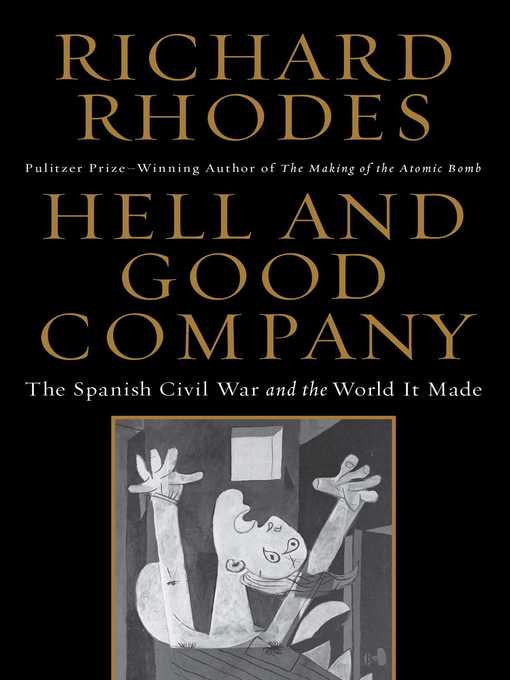
Hell and Good Company
The Spanish Civil War and the World It Made
کتاب های مرتبط
- اطلاعات
- نقد و بررسی
- دیدگاه کاربران
نقد و بررسی

December 1, 2014
Historian Rhodes (who won a Pulitzer Prize for 1986’s The Making of the Atomic Bomb) combines numerous memoirs to provide a ground-level view of the Spanish Civil War (1936-1939). The struggle between Republicans and Franco-led Nationalists was brutal: “fully half a million died directly, or from hunger and disease, or immediately afterward in Franco’s hundred thousand vindictive executions.” Rhodes follows the fighting, showing that the Republicans were doomed by Nazi Germany and fascist Italy’s intervention on Franco’s side, which led to the carpet bombing of Guernica (inspiring Picasso’s painting) and elsewhere. Meanwhile, Britain and France kept their distance, and the U.S.S.R. withdrew its support for the Republicans toward the war’s end. Rhodes profiles medical volunteers and writers such as Ernest Hemingway, Martha Gellhorn, André Malraux, Antoine de Saint-Exupéry, and New York Times correspondent Herbert Matthews. Aside from some medical innovations, such as new concepts of battlefield triage, Rhodes never specifies how the war changed the world, but he does offer a vivid look at how the desperate struggle appeared to participants. Agent: Anne Sibbald, Janklow & Nesbit.

January 1, 2015
Rhodes (The Making of the Atomic Bomb) recounts the human and medical sides of the Spanish Civil War (1936-9). Pitting the Spanish Republic against a right-wing military revolt, the war drew in tens of thousands of antifascist international volunteers, plus regular forces from fascist Germany and Italy. But this book sidelines familiar politics in favor of human stories. Some of the narratives are whimsical--a celebrated author ducking cannon fire to hand out grapefruit or British nurses bathing in a river and scandalizing the villagers. Other accounts are grievous, such as 4,000 Basque children evacuated to Britain as Nazi bombers blitzed their cities. Still others tell of blood banks, transfusions, and additional medical innovations by valiant foreign doctors, several of whom returned to their homelands only to face persecution as "premature anti-Fascists." Such anecdotes may well inspire readers to pick up a more substantial analysis, such as Hugh Thomas's classic Spanish Civil War or George Orwell's autobiographical Homage to Catalonia, upon which Rhodes draws. VERDICT Although subject experts should look elsewhere for a cohesive study or original research, readers unfamiliar with the Spanish Civil War will discover the tragicomic experiences and human costs of Europe's first war against fascism. [See Prepub Alert, 8/4/14.]--Michael Rodriguez, Hodges Univ. Lib., Naples, FL
Copyright 2015 Library Journal, LLC Used with permission.

























دیدگاه کاربران